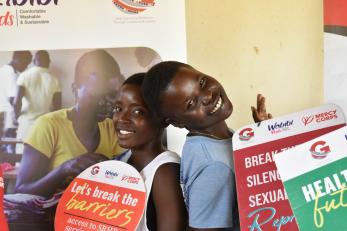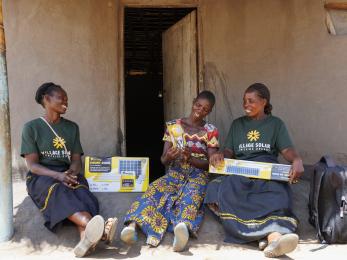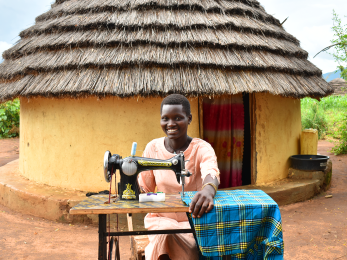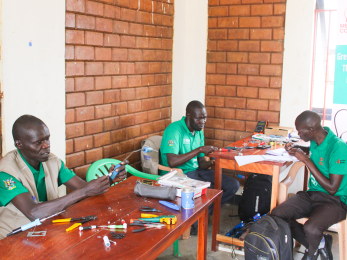Stories of Change: Sexual Reproductive Health Rights Programme

The Sexual Reproductive Health, and Rights (SRHR) component of the Girls Improving Resilience through Livelihood and Health (GIRL-H) programme aims to improve girls’ wellbeing. The programme is focused on the following objectives:
- Adolescents and youth in Uganda have improved awareness and sustainable access to SRH health services and products.
- Improved gender attitudes toward girls' uptake of Sexual Reproductive Health products and services.
Using a safe space approach, the programme has supported 5,179 (50% male and 50% female) adolescents and young people in the uptake of SRHR information. Since 2022, 73% of the enrolled participants have completed the SRHR curriculum, resulting in a significant enhancement of their knowledge of SRHR and improved access to SRHR services in the five districts of Moroto, Karenga, Kaabong, Kotido, and Amudat within Karamoja, Uganda. The programme has also trained 500 (150 male, 350 female) parents in making bar soap and reusable sanitary pads, which has led to increased access to menstrual products for hundreds of young people in rural communities.
This storybook highlights the journey of adolescent girls and boys who participated in the GIRL-H SRHR programme from 2022- 2023. It showcases the programme's successful outcomes in increasing the accessibility and availability of SRHR products and services, as well as its gradual impact on transforming social norms, attitudes, and behaviors. The sStorybook will address the following key learning questions:
- What is the impact of the GIRL-H (SRH) interventions (human, social) on well-being (health and social) of adolescent girls, boys, and young people?
- What context-specific factors facilitate meaningful access to SRH products and services?
The story book is targeted at a range of actors and stakeholders in the SRHR sector in Uganda and aims to provide insights and perspectives about context-appropriate SRHR practice, particularly in the Karamoja region.


